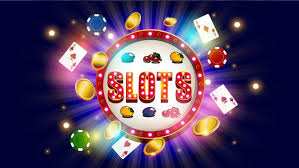
In the vast landscape of human interactions, few concepts are as deeply ingrained and universally understood as the bet. From ancient times to modern-day, the act of placing a wager has been a fundamental part of human culture, reflecting our innate desire for competition, risk-taking, and the allure of potential rewards. But what exactly is a piala eropa, and why does it hold such fascination for us?
At its core, a bet is a voluntary agreement between two or more parties, typically involving the prediction of an outcome and the exchange of something of value. Whether it’s a friendly wager between friends, a high-stakes gamble in a casino, or a speculative investment in the financial markets, the essence of a bet remains constant: the uncertainty of the outcome and the potential for gain or loss.
One of the most intriguing aspects of betting is its ability to reveal fundamental truths about human nature. The willingness to take risks, the thrill of anticipation, and the emotional rollercoaster of wins and losses all speak to the complex interplay of psychology, cognition, and emotion that defines us as human beings.
From a psychological standpoint, the act of placing a bet can be seen as a manifestation of our innate appetite for uncertainty. Studies have shown that the anticipation of a reward, however uncertain, triggers the release of dopamine in the brain, the neurotransmitter associated with pleasure and reward. This neurological response helps explain why even the possibility of winning can be so exhilarating, driving individuals to seek out betting opportunities despite the inherent risk involved.
Moreover, the psychology of betting is deeply influenced by cognitive biases and heuristics that shape our decision-making processes. The gambler’s fallacy, for example, leads people to believe that past events influence future outcomes, leading to irrational betting behavior such as chasing losses or doubling down after a series of wins. Similarly, the availability heuristic causes individuals to overestimate the likelihood of rare events based on their ease of recall, leading to inflated expectations of winning.
But beyond the realm of psychology, the institution of betting also reflects broader social and cultural dynamics. Throughout history, betting has served as a social lubricant, fostering camaraderie, competition, and community bonding. From ancient civilizations organizing chariot races and gladiatorial combat to modern-day sports betting and poker tournaments, the act of wagering has brought people together in shared experiences and shared excitement.
At the same time, however, the allure of betting has also led to its fair share of controversy and criticism. From concerns about addiction and problem gambling to debates over the ethics of gambling industry practices, the societal implications of betting are complex and multifaceted. While some argue that betting is a harmless form of entertainment and personal choice, others contend that it exploits vulnerable individuals and perpetuates inequality.
In recent years, the rise of online betting platforms and the proliferation of cryptocurrencies have further transformed the landscape of betting, introducing new technologies and new opportunities for both innovation and exploitation. The advent of blockchain technology, for example, has enabled the creation of decentralized betting platforms that promise greater transparency, security, and fairness. At the same time, however, it has also raised concerns about anonymity, regulation, and the potential for money laundering and fraud.
In conclusion, the bet remains a timeless and universal phenomenon that continues to captivate and intrigue us to this day. Whether viewed as a psychological puzzle, a social phenomenon, or a moral dilemma, the act of placing a wager offers valuable insights into the complexities of human nature and the dynamics of risk and reward. As we navigate the ever-evolving landscape of betting in the 21st century, it is essential to approach it with both curiosity and caution, mindful of its potential benefits and pitfalls alike.